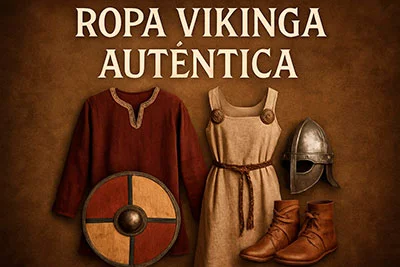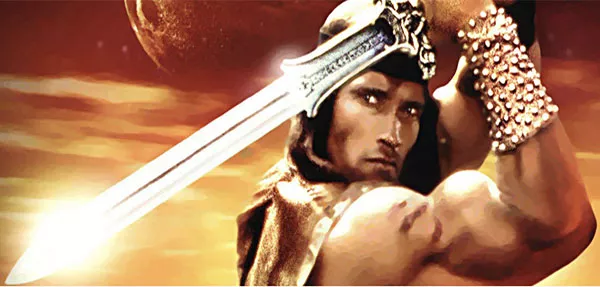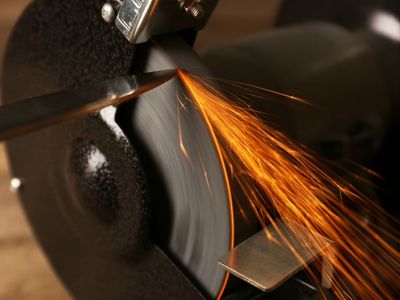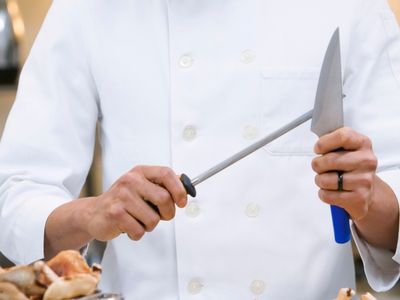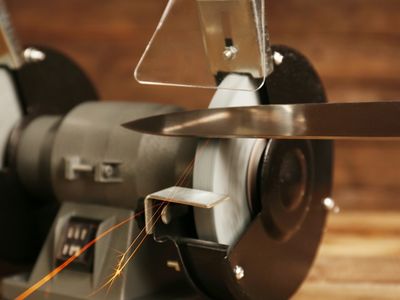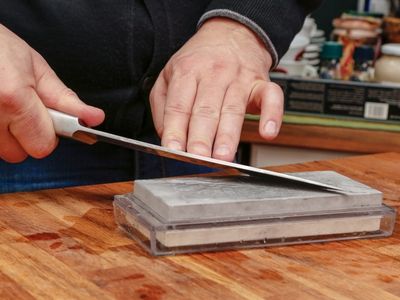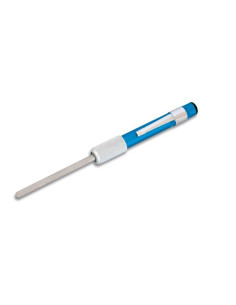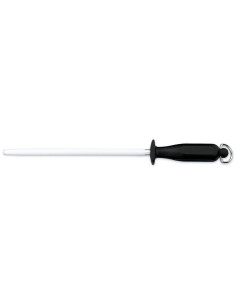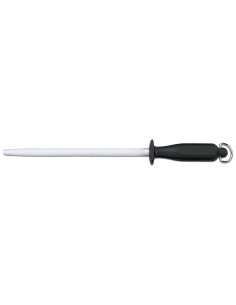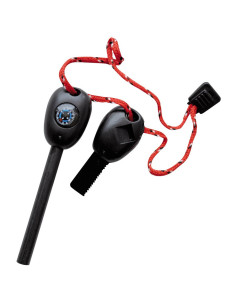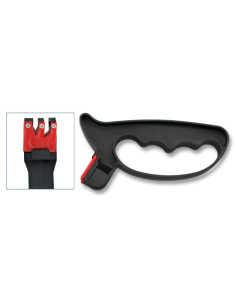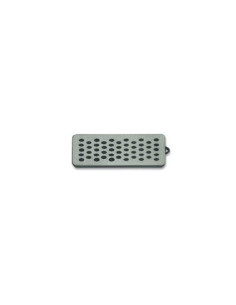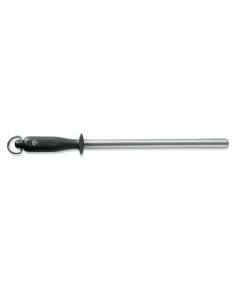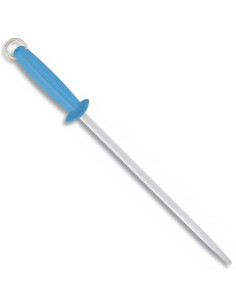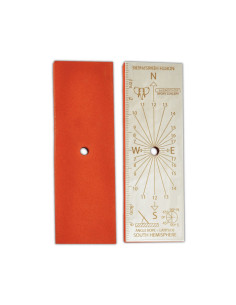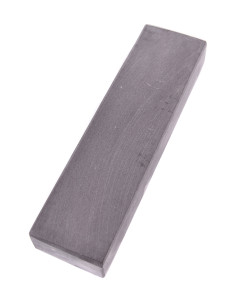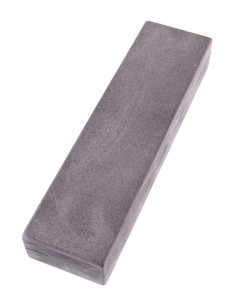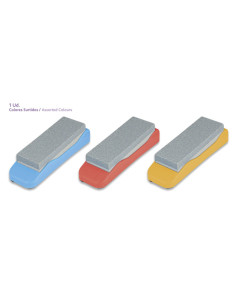sharpeners
Whetstone Deluxe CotPyr sharpening stone, grain 1200 (15x4 cm.)
The Importance of Keeping Your Tools Sharp
Sharpening is a crucial process for maintaining the effectiveness of your cutting tools. Whether you use knives, scissors, or gardening tools, a good sharpener ensures that your instruments maintain a proper edge to perform their tasks effectively. A clean cut is not only more efficient but also enhances safety by reducing the likelihood of accidents that occur with dull utensils.
One of the main advantages of using well-sharpened tools is that they require less effort. This translates into less fatigue and greater comfort while working. Regular sharpening prolongs the lifespan of your tools, representing a long-term savings. Therefore, investing in a good sharpener is a smart decision for any user, whether professional or amateur.
Different Types of Sharpeners and Their Uses
There are various types of sharpeners, each designed to meet specific needs. For example, diamond sharpeners are highly effective and ideal for sharpening high-performance knives. On the other hand, sharpening stones offer a more traditional method, allowing for more precise control and finishing, especially on chef knives or crafting tools.
Additionally, there are multi-purpose sharpeners that are perfect for those looking for an easy-to-use tool for sharpening both knives and scissors. Choosing the right sharpener depends on the type of tools you use and the finish you wish to achieve. Without a doubt, a well-chosen sharpener will help you keep your utensils always ready for use.
Care and Maintenance of Sharpeners
Maintaining sharpeners is just as important as using them correctly. Regularly cleaning your sharpener, whether it's a stone, a handheld sharpener, or a honing rod, ensures its long-term effectiveness. The accumulation of metal and debris can affect sharpening quality, so it's advisable to rinse or clean them after each use.
Moreover, it is crucial to store them in an appropriate place to avoid damage. Poor storage could impact their performance. Using covers or cases designed for sharpeners can protect them from knocks and falls that could affect them. Proper maintenance ensures that your investment in sharpening tools pays off for a long time.
How to Choose the Right Sharpener for You
When it comes to choosing a sharpener, there are several factors to consider. First, the type of tool you need to sharpen is fundamental to the sharpener's selection. For example, a kitchen knife may require a different sharpener than scissors or a gardening tool. It is also important to consider where you will use the sharpener, as some are more suitable for outdoor use than others.
Another aspect to evaluate is the grit of the stone or the type of abrasive in the sharpener. Coarser sharpeners are ideal for restoring worn edges, while finer grits allow for precise finishing. The frequency of use and your personal skills should also influence your choice. All of this contributes to maintaining your tools in the best possible way.
Benefits of Using Advanced Technology Sharpeners
Modern sharpeners have evolved considerably, incorporating advanced technology that enhances the sharpening experience. Models with diamond surfaces, for example, allow for faster and more durable sharpening, which is ideal for those requiring precision and efficiency in their work. This technology reduces the risk of damaging the tool's edge and improves results compared to traditional methods.
Additionally, the ergonomic design of many contemporary sharpeners makes the sharpening process more comfortable, even for prolonged use. Some models are also compact and portable, making them easier to use both at home and outdoors. Thus, investing in a modern sharpener is not only financially advantageous, but it also significantly improves the quality of your performance when working with cutting tools.
What are the different types of sharpeners available?
In our online store, you will find various types of sharpeners, including diamond sharpeners, sharpening stones, and multi-purpose sharpeners. Each type is designed for a specific use, such as knives, scissors, or gardening tools. The choice will depend on your particular needs and the type of tool you wish to sharpen.
How often should I sharpen my tools?The frequency of sharpening depends on the usage of the tools. If you use your knives or scissors daily, it is recommended to sharpen them every few weeks. For tools that you use less frequently, sharpening may be necessary once a month or every few months. Observe the performance of your tools and sharpen them when you notice they're not cutting effectively.
Is it difficult to use a sharpening stone?Using a sharpening stone may seem complicated at first, but with some practice, it becomes quite simple. The key is to maintain the correct angle while sharpening the tool. Furthermore, by following the usage instructions that generally come with the sharpener, you can achieve optimal results. Practice will improve your technique over time.
Can I sharpen any type of knife with a conventional sharpener?Not all knives are suitable for sharpening with the same method. Steel, ceramic, or high-carbon knives may require different techniques and tools. It is important to know the specifications of your tools to select the most appropriate sharpener and ensure they are not damaged during the sharpening process.
How should I clean my sharpener after using it?Cleaning your sharpener is vital to maintain its effectiveness. After each use, especially if you used a sharpening stone, be sure to rinse off any metal debris. Clean the surface with water and a soft brush or cloth, ensuring that you do not damage the texture of the stone or abrasive. Allow it to dry properly before storing it.
What advantages does a diamond sharpener have?Diamond sharpeners are known for their high durability and fast sharpening capability. They provide a fine finish and are ideal for high-quality steel tools. Their efficiency allows for a precise edge without losing much material from the tool, resulting in a longer lifespan. Additionally, they are easy to clean and maintain.
Is it necessary to use water or oil with some sharpeners?Depending on the type of stone or sharpener you use, it may be necessary to use water or oil during the sharpening process. Traditional sharpening stones require water to soften the sharpening process and avoid quick wear. However, some diamond sharpeners may not require any lubrication. Check the specific instructions for each type of sharpener you use.
Discover the wide variety of sharpeners we have to offer in our online store. Keep your tools in optimal condition and increase their longevity and efficiency. Visit us and find the perfect sharpener that suits your needs. Don't wait any longer!

